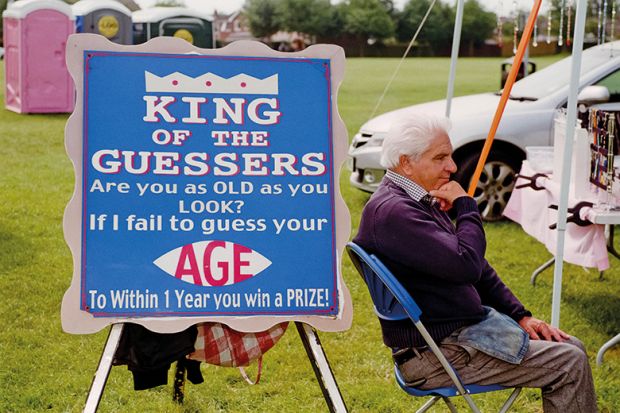Just 16 per cent of UK higher education applicants’ grades are accurately predicted, according to a new report that calls for change to a university admissions system that sees life-changing decisions made on “inaccurate information”.
While disadvantaged students are more likely to have A-level grades over-predicted overall, among high-achieving applicants “disadvantaged students are more likely to be under-predicted than their more advantaged counterparts”, says Gill Wyness, lecturer in the economics of education at the UCL Institute of Education, in a paper published by the University and College Union.
The UK is unique in having a university admissions system that relies on predictions of students’ grades made by their schoolteachers.
Dr Wyness suggests that prediction accuracy could have “a negative impact on the labour market outcomes of high ability but disadvantaged students, as well as potentially skewing the socio-economic mix" of highly selective universities.
She adds that “it seems highly inefficient to continue with a system in which life changing decisions are made, and scarce university places are allocated, on the basis of inaccurate information”.
Dr Wyness’ research is based on “bespoke data” provided by Ucas, the university admissions service, on applicants to higher education courses in the UK for the 2013, 2014 and 2015 entry cycles.
As well as finding that just 16 per cent of applicants’ grades were accurately predicted among their best three A levels, Dr Wyness finds that a “further 8.5 per cent of applicants were under-predicted, whilst the vast majority (75 per cent) of applicants’ grades were over-predicted”.
Dr Wyness also says that applicants with the equivalent of AAB or better at A level “tend to be more likely to be underpredicted than the average applicant, with 21 per cent of AAB applicants having their points score under-predicted, versus 8.5 per cent of all applicants”.
She adds: “Among these AAB applicants, applicants from the most disadvantaged group are slightly more likely to have their grades under-predicted than those from the least disadvantaged groups (23.7 per cent v 20.3 per cent) suggesting there is some evidence that high ability disadvantaged students are particularly likely to fall into the category of being under-predicted.”
Dr Wyness also finds that “high ability under-predicted applicants are less likely to apply to top universities (to the tune of 8.7 percentage points)”.
Sally Hunt, the UCU general secretary, said: “This report is a damning indictment on a broken system, not the hard-working teachers tasked with the impossible job of trying to make predictions.
“The results strongly support our call for a complete overhaul of the system, where students apply after they receive their results.”
Ucas had previously pressed for a switch to post-qualification applications, but abandoned the plan in 2012 in the face of opposition from schools and universities.
Mary Curnock Cook, Ucas chief executive, said of the UCU report: “These proposals would reduce choice and put students from challenging backgrounds at further disadvantage.
“It is not the case that only 16 per cent of predicted grades are right – the correct interpretation is that only about 16 per cent of students have no net deviation at all from their predicted grades across three A-level results.”
Register to continue
Why register?
- Registration is free and only takes a moment
- Once registered, you can read 3 articles a month
- Sign up for our newsletter
Subscribe
Or subscribe for unlimited access to:
- Unlimited access to news, views, insights & reviews
- Digital editions
- Digital access to THE’s university and college rankings analysis
Already registered or a current subscriber? Login







